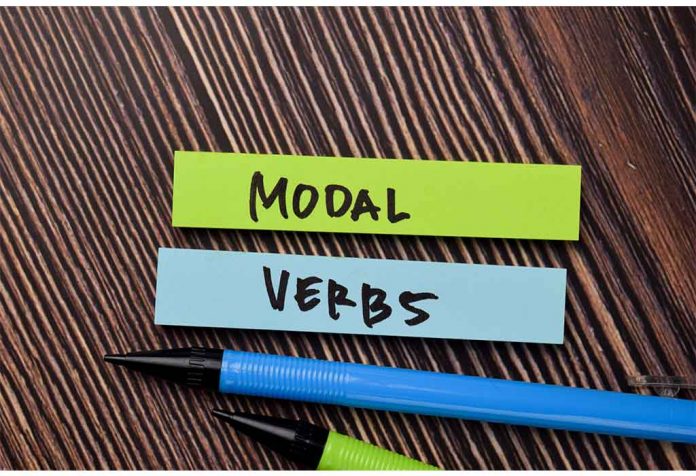- What Are Modal Verbs?
- Why Are Modal Verbs Important For Kids?
- At What Age Should Children Learn About Modal Verbs?
- Uses Of Modal Verbs
- What Are Some Different Types Of Modal Verbs?
- How To Use Modal Verbs In Sentences?
- How To Identify And Recognise Modal Verbs?
- Activities That Will Help Your Child To Learn About Modal Verbs
Teaching your little one the intricacies of English grammar can be tricky. For example, teaching modal verbs to children is not an easy task. Learning about modals in English help children, as they will be made aware of these words when they read, and work on basic writing tasks. Children should be introduced to modal verbs and modals grammar with the help of examples before talking about the effect of those verbs in the sentence. You can also provide your child with writing tasks to help them practice modal verbs.
We have some activities here that will help your child learn about modal verbs, but before that, let’s look at the definition of modal verbs, what they are, how to identify them, their use and more.
Thank you for reading this post, don't forget to subscribe!
What Are Modal Verbs?
Modal verbs are a special kind of verb used alongside the main verbs to change their meaning slightly. These are used to indicate possibility, obligation and ability. These verbs behave differently from ordinary verbs, and can’t work alone. Modal verbs need to be used with another verb in the sentence to make a meaningful sentence.
The most common modal verbs are – will, would, should, could, etc.
Why Are Modal Verbs Important For Kids?
Children need to understand modal verbs because it helps to communicate better and more clearly. It allows you to give more detail about actions in a sentence quickly. These words are used in instructions, rules and guides and thus help children comprehend what is being said or asked. Also, having a full grasp of modal verbs allow the children to be more particular about the words they use, which will improve their ability to communicate with others.
At What Age Should Children Learn About Modal Verbs?
Children are taught modal verbs when they are around 5 or 6 years old. Children are already aware of these words as they come across these words while reading storybooks. Gradually, children are introduced to the technical modal verb.
Uses Of Modal Verbs
Following are the uses of modal verbs:
1. Modal Verbs Of Prohibition
They are used to convey obligation and necessity in a sentence. Clear guidance for what to do in a given situation is provided for a reader or a listener.
Example: You must do your homework tonight.
2. Modal Verbs Of Suggestion
They are used to give advice or to suggest an action. You can use these in a situation where it might be considered rude to give an outright order.
Example: You should stay at home if it’s raining.
3. Modal Verbs Of Possibility And Promise
They are commonly used to describe our actions and actions out in the world.
Example of possibility: I could meet up on Friday.
Example of promise: I will meet up on Friday.
4. Inverting Modal Verbs
We can invert or switch around the modal verbs and the subject of a sentence and form a question out of it.
Example: “We could go to the bookstore tomorrow” becomes “Could we go to the bookstore tomorrow?”
What Are Some Different Types Of Modal Verbs?
Below are different kinds of modals for kids.
1. Ability
Used to demonstrate a skill or someone’s ability.
2. Advice
Used to help give gentle advice.
3. Obligation
Used to give instructions, advice, or to declare that something is necessary.
4. Permission
Used to ask or to give permission for something.
5. Prohibition
Used to set boundaries or rules.
6. Possibility
Used to demonstrate the likelihood that something can/is going to happen.
How To Use Modal Verbs In Sentences?
Each modal verb has its own use and meaning. Let’s look at some of them.
1. Can Verb
Negative Form: Can’t
Use of Can Verb: To express ability, and possibility, to make a request or to ask for permission and make an offer or a suggestion.
Examples
- Can you come to play today?
- Can you help me with this?
- I can call you after some time.
- Alex can’t fix the phone.
- Mark and Joey can jump very high.
- Mary can play the piano since she was 5 years old.
- Lucy can come early if you want. She doesn’t have homework today.
2. Could Verb
Negative form: Couldn’t
Use of Could Verb: To make requests, suggestions or offers politely.
Examples
- I could go to the store with you if you’d like.
- Could you pass me the pepper, please?
- Krish was free at the moment, so he could go to the movies with her.
- Could I go play with Mary?
- I couldn’t jump very high when I was little.
- It could be sunny tomorrow.
- I could help you with French.
3. May Verb
Negative form: May not
Use of May Verb: To talk about permission in the present, make suggestions, and discuss possibilities.
Examples
- May I go to the washroom, please?
- Alex may go to your party later.
- May I help you with the task?
- I can’t help you with the project, but your friend may be able to.
- It may be a good idea to go for a walk early.
- Mary may not stay out of home late.
- May I borrow a pencil?
4. Might Verb
Negative form: Might not
Use of Might Verb: To express possibility in the present or in the future, but to a lesser degree than with “may”.
Examples
- I heard that it might rain today.
- Don’t call Ryan right now. He might not be in office.
- Baby Elizabeth has a new dance teacher that you might like.
- Jenny might need your help later.
- Ben might go to Europe this summer.
- This cooking class looks interesting. I might take it.
- I might be a few minutes late.
5. Will Verb
Negative form: Won’t
Use of Will Verb: To talk about wishes, requests, demands, to make predictions and assumptions, to make promises and to talk about spontaneous decisions and to talk about habits.
Examples
- I won’t be far away.
- Do you need help? I will help you!
- Look at the sky. It will rain later.
- Betty thinks her team will win the championship.
- I don’t have my phone here, but I will call Sam as soon as possible.
- Will you turn off the light, Peter?
- I won’t tell your secret to anyone.
6. Would Verb
Negative form: Wouldn’t
Use of Would Verb: To make wishes and requests in a polite manner.
Examples
- I wish I would stay awake all night listening to music.
- Would you open the jar, please?
- I would love to dance, thanks!
- Would you like to play football with me on Sunday?
- I would rather have milk, please.
- Would you prefer sweet or salty lemonade?
- She wouldn’t take her coat off.
7. Shall Verb
Negative form: Shall not
Use of Shall Verb: To make offers, and suggestions, talk about options and ask about what to do in a very polite manner.
Examples
- Shall I help you with your project?
- Great, let’s meet later. Shall we say 5 p.m. then?
- I shall have to be at the airport by 3 pm.
- You shall not forget to bring your car.
- She shall be replaced with a new dance teacher.
- Shall we begin the game?
- I shall post it to you tomorrow.
8. Should Verb
Negative form: Shouldn’t
Use of Should Verb: To give advice, express what’s right, and recommend an action.
Examples
- We should arrive on time.
- Len thinks that we should meet on Saturdays.
- Should I stay here with you?
- The children should start studying soon.
- I think you should buy a black car instead of a red one.
- Maybe we should check everything once more.
- Karen should stop eating fast food.
9. Must Verb
Negative form: Mustn’t
Use of Must Verb: To talk about necessity.
Examples
- We must go, we have a doctor’s appointment soon.
- You mustn’t use mom’s phone without her permission.
- You must try some of this chocolate pastry.
- Ben has been studying all day. He must be tired.
- The new movie is great, you must see it!
- Alex must be a teacher. He knows a lot about maths.
- You must come and see us soon.
10. Ought To Verb
Negative form: Ought not to
Use Ought To Verb: To express advice and obligation.
Examples
- It’s snowing. You ought to drive carefully when you leave.
- Lizzy ought to help her sister when she moves to her new house.
- Alex, you ought to help your sister with her homework!
- All the players ought to be on the field after snacks.
- You ought to clean up your room.
- We ought to avoid taking my father’s car.
- They ought to have more gardens in the city centre.
How To Identify And Recognise Modal Verbs?
Modal verbs are quite easy to identify as these are a type of auxiliary verbs that indicate the modality. The main difference between the two is that modal verbs are not subject to inflection, but auxiliary verbs change according to tense, case, aspect, person, and number.
Activities That Will Help Your Child To Learn About Modal Verbs
Modal verbs rules and examples can be taught to children, but there is no easy way to learn modals. We have come up with some activities to help teach your kid modal verbs.
1. Fill In The Blanks
Write some examples of sentences using modals and below them, write some more sentences with missing modals for children to fill in.
2. Teach With Pictures
Start by showing your child a picture, something like “no-running”, and ask them what it means. If they say “no running,” ask them to elaborate in full sentences. This should elicit “you can’t run” or something to that effect.
3. Circle The Modals
Give your child a newspaper and ask them to read a particular article. Ask them to circle the modal verbs they can spot while reading. You can also ask your child to explain the meaning of modal sentences they have circled.
4. Role Play
Directions role play can help children to understand modals. Ask your little ones to construct their own dialogues using the modals. This will give children a chance to show off their production skills.
Also Read:
Descriptive Words for Kids to Learn
Compound Words for Children in English with Examples
Vocabulary Words for Children to Improve Language Skills











